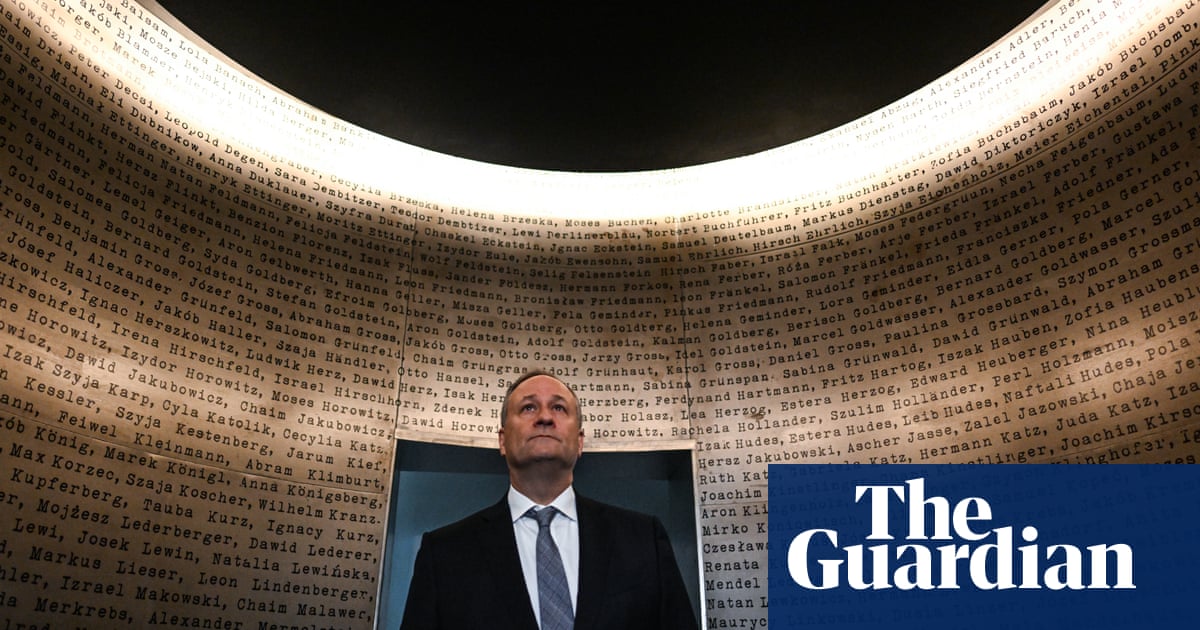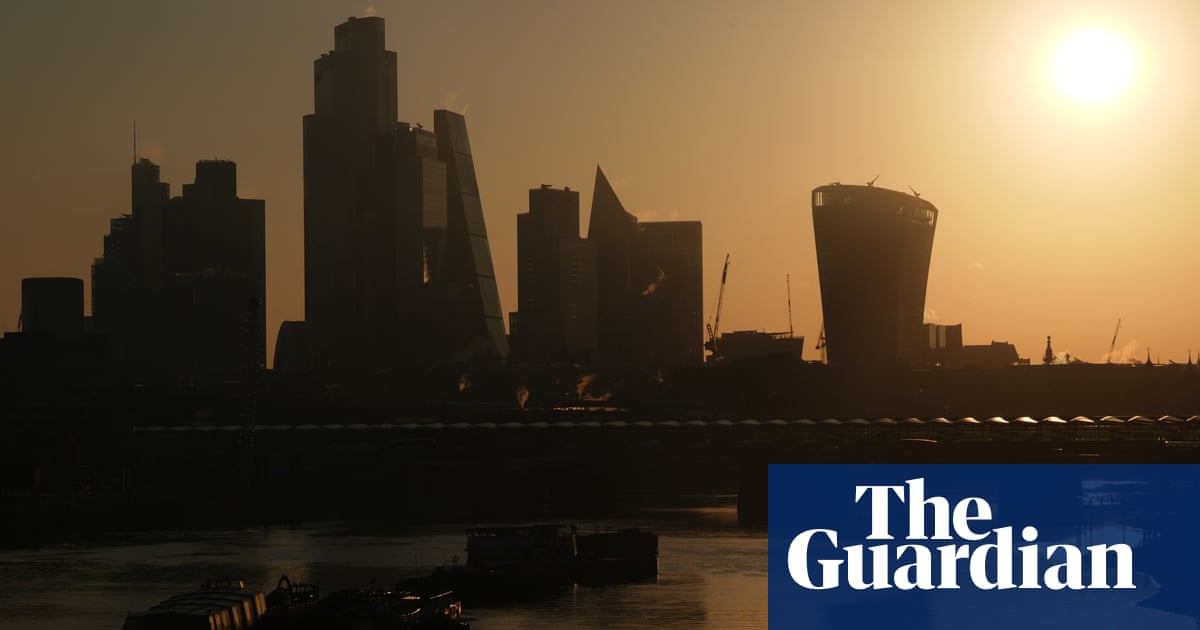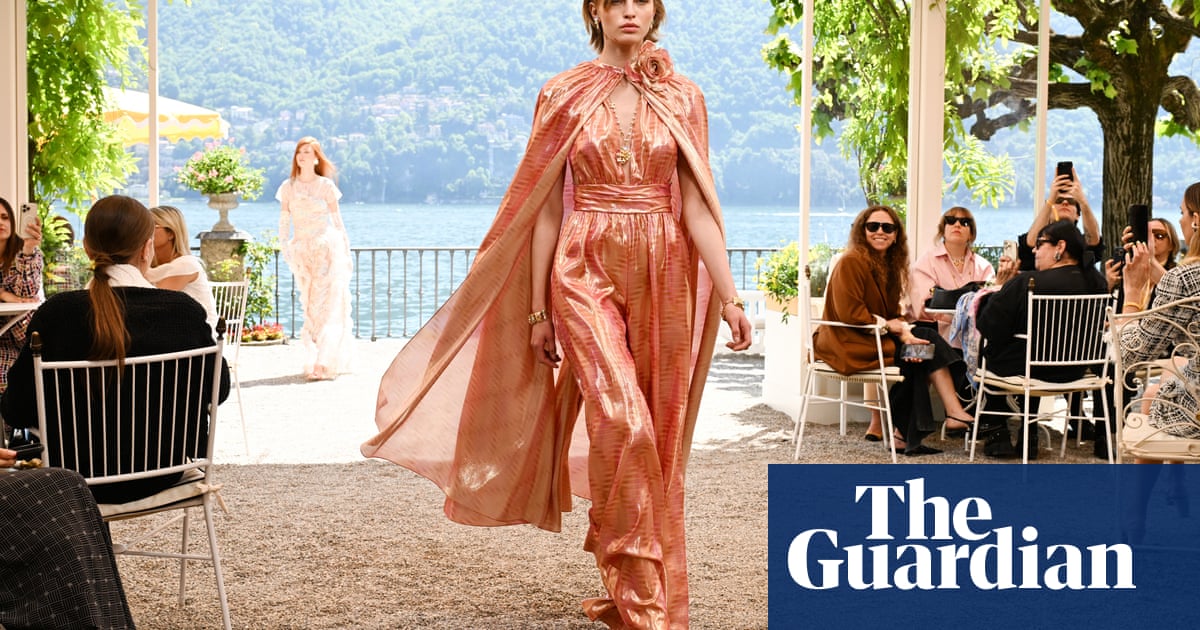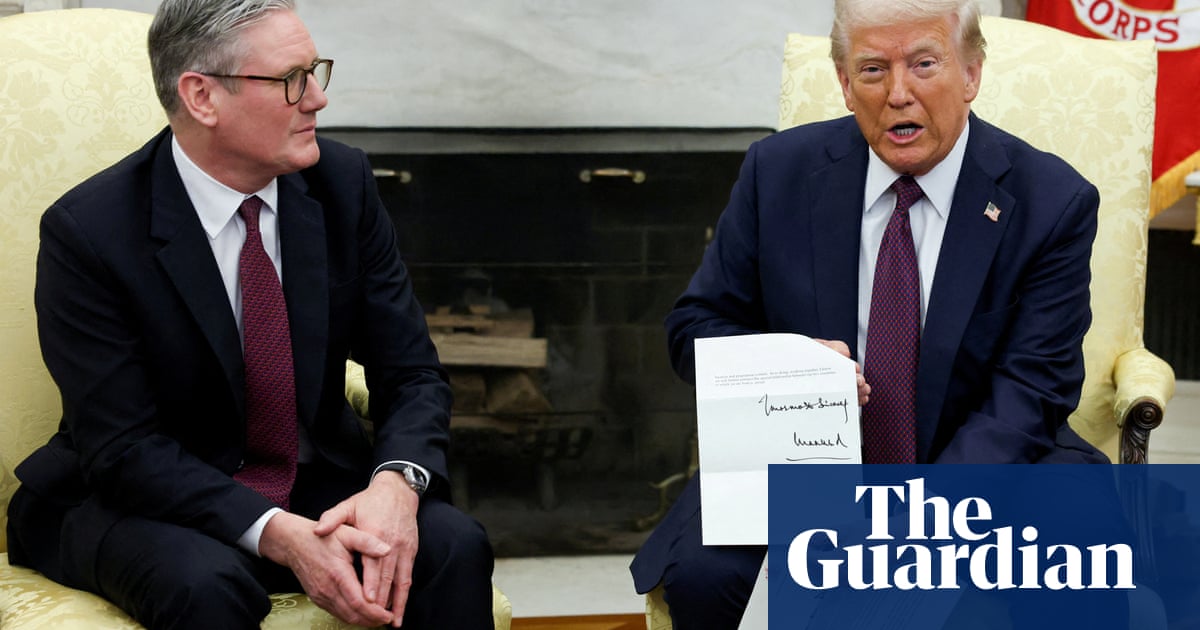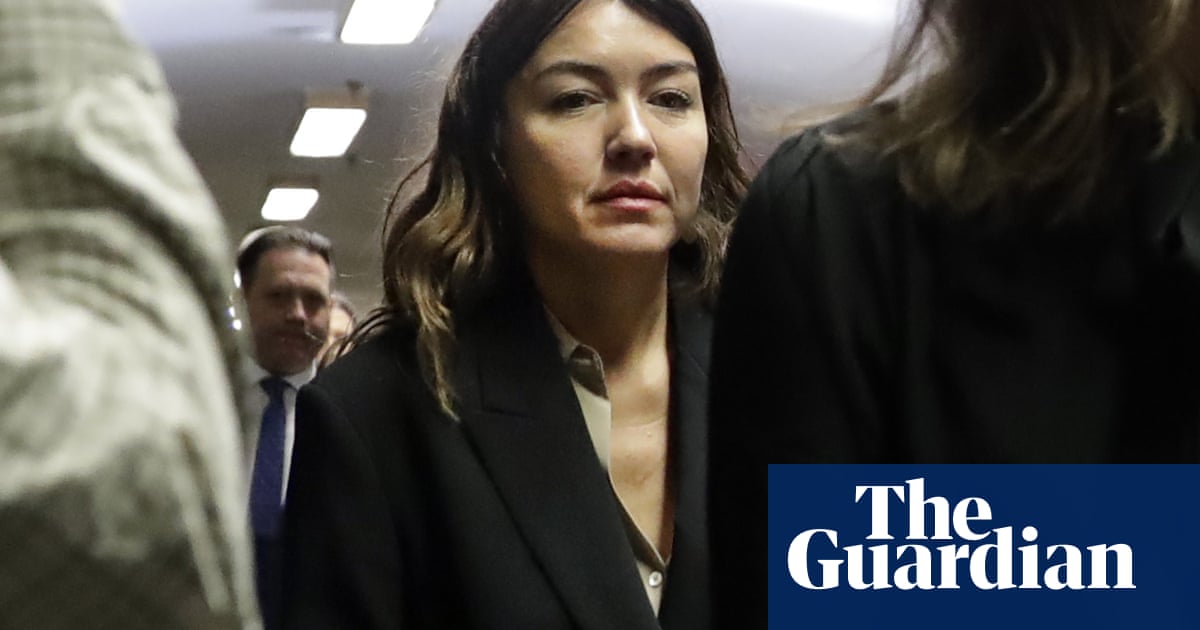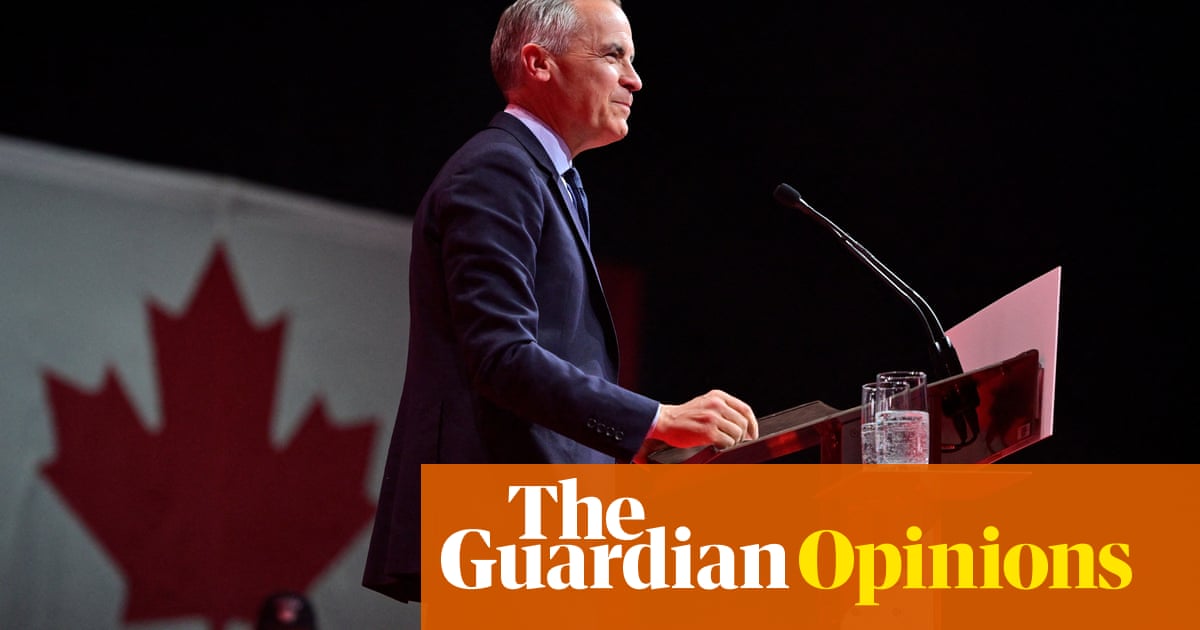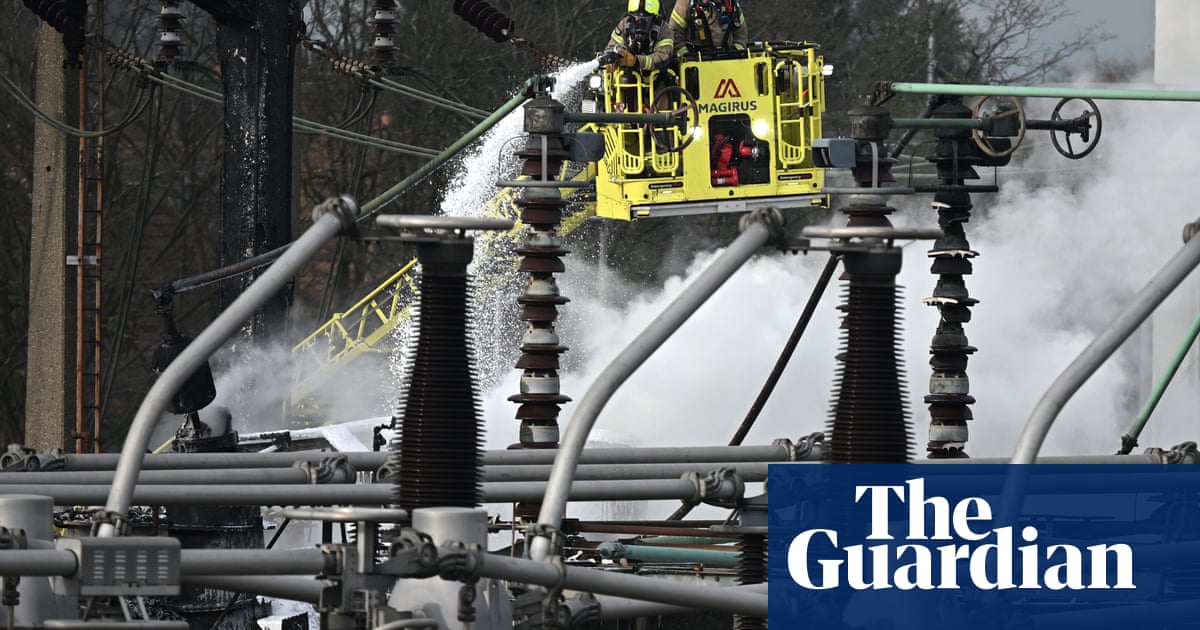Indhu Rubasingham is starting her tenure at the National Theatre with a blast of bloody anarchy – of the ancient Greek variety. The opening play in her inaugural programme is a part verse, part spoken-word reworking of The Bacchae, which features orgiastic delirium and violent frenzy as a group of women tear a king to bits.
Rubasingham will direct Bacchae (without its definite article) herself. This reimagining of the Euripides drama is the work of first-time playwright Nima Taleghani, better known as an actor (he featured in Jamie Lloyd’s rapping Cyrano). There is a certain anarchic spirit to this kicking-off point: Rubasingham is putting a debut writer’s play on the NT’s biggest stage, the Olivier, which has never before showcased a first work.
Bacchae’s trailer cuts between the glossy, blood-smeared lips of different members of the female chorus who coolly rap about the terror they have wreaked. “Chewed his face off,” they say, while a pair of lips suck a dismembered thumb as if it were a lollipop. Another trailer, for a forthcoming Hamlet directed by NT deputy artistic director Robert Hastie, shows Hiran Abeysekera as the Dane in dark shades and mischievous grin. “To be or not to be, innit,” he says with a glint. Hamlet is another symbolic choice: it was the first play Laurence Olivier staged when he founded the NT.
Rubasingham is sitting cross-legged at one end of a sofa at the NT with Kate Varah, co-chief executive of the theatre with Rubasingham, on the other. Rubasingham thinks Bacchae is an apt way to launch her first season: the play revolves around Dionysus, who is the god of theatre – and the Olivier’s auditorium was architecturally inspired by the amphitheatre at Epidaurus, where The Bacchae was staged in the fifth century BC. “I think it’s an important statement,” she says. “I’m really excited about it. The Bacchae is one of our oldest plays. It harks back to the roots of western theatre, and Nima’s voice, language and skill are so refreshing. It’s contemporary to the point that a dear colleague, when he first read it, went, ‘Do you think you’re cool enough to direct this?’”
Young and punkish it may be, but what will the purists say? “Well, The Bacchae has always been about disruption,” says Rubasingham. “It was traditionally staged around festival time so it had an anarchic quality. And if we’re going to do Hamlet, too, we’d better do something interesting, otherwise why would we want to see the play again and again and again?”
So far, so bold. Disruption is in fact a key theme of Rubasingham’s first season, alongside celebration, reinvention and internationalism. And music will apparently play a vital part in this programme, with one forthcoming collaboration between Rubasingham and none other than the rapper Stormzy. Staging Bacchae in the Olivier is about challenging the idea of what gets played where, she says, and who gets the biggest platform. “For me, new writing sits in all three NT spaces, just as musicals sit in all three. One of the things we’re exploring is musicals in the Dorfman.” To that end, there is an adaptation of the 2014 film Pride, based on a true story about the LGBTQ+ community’s support for the 1984 miners’ strike.
This does not necessarily herald an erosion of the established boundaries between the NT’s three stages, she says, more that decisions may be made on a case-by-case basis. “Bacchae,” she reflects, “is totally made for the Olivier.”
Varah, who has been at the NT since 2022, adds: “It’s the right kind of risk.” She points out the juxtaposition of heritage and renewal in Rubasingham’s programme. “So taking something that has depth, rigour and legibility with an audience, and giving it a completely new take, renews people’s contract with the piece.”
Might it also be about getting a different demographic through the doors – especially the longed-for younger generation? “What’s really important,” says Rubasingham, “is that this National Theatre is welcoming to the audiences that have loved it for decades, as well as new audiences. I hope it hits that sweet spot in appealing to younger audiences and people who love classical theatre.”

She has even coined a term for her blend of canonical and contemporary: the “modern mainstream”, which she hopes will redefine what people think of as mainstream. She recalls doing The Wife of Willesden when she was at the Kiln theatre. “It was Zadie Smith talking to Chaucer. I love these relationships between exciting, contemporary playwrights and the original author. That dialogue feels very alive.”
Meanwhile, in a move that will appeal to traditionalists, the repertory system is to return, banner-headed by the mega-wattage of Paul Mescal. The Gladiator II star will perform in the first of two rep seasons: in A Whistle in the Dark, directed by Caitríona McLaughlin, and Death of a Salesman, directed by Rebecca Frecknall.
Rep has been missing from the NT since 2019, a fact bemoaned by playwright David Hare in recent years. Is this connected to his very public protest? “No, not at all,” says Rubasingham. “I’m very fond of David but that’s not it.” It was halted due to Covid, adds Varah, out of survival instincts: putting on two shows featuring the same actors is much more costly and complicated than it was a decade or two ago.
Rep will be tried out on the Lyttelton stage for a season. “This is an opportunity to think about a hybrid model we could bring back, in some of the stages in some of the seasons. It enables those who want to play with it, but won’t be a structural barrier to everything else we want to programme. One actor might say, ‘I can’t do it because I’m contracted to X.’ And then we’ll do a straight run. But if there’s another who says, ‘I’m energised and excited and will keep myself free’ then we can plan. It’s all about being agile and allowing the artist and audience to come first.”
Mescal practically bit Rubasingham’s hand off when she offered him the chance to rep. “We were talking about a particular play,’ she says, “and then, when we started talking about rep, he got so excited.” Mescal has won plaudits for his stage work but is still more of a screen A-lister. Does this trend towards “celebrity casting”, prevalent on Broadway and in the West End, make for a healthy theatre ecology?

“It’s lovely to get Paul Mescal in a rep season,” she simply says. “That’s exciting and he’s a brilliant stage actor. It’s always going to be about the quality – and it’ll make people excited about coming.” What about farther afield? Is it not a danger to keep going down this road? “I don’t think it’s a danger at all,” says Rubasingham. “I think where it goes crazy is in America as ticket prices become $900.”
But in London, I point out, the tickets for some of Jamie Lloyd’s shows have jumped to several hundreds, likewise for Rebecca Frecknall’s Cabaret. “It’s hard because it’s a different model. If I were a commercial producer in the West End, I’d probably do the same thing. That’s why I’m so excited about being here – I don’t have to put myself in that position.”
After a thoughtful pause, she adds: “I think those shows that have really expensive tickets allow producers to take a risk on something else. That’s the balancing act.”

Either way, says Varah, celebrity casting means something different at the National, where the average price of a ticket is £33, with a quarter of all tickets costing under £25. “There’s joy for a teenager or school student coming in to see an actor they might have seen on screen,” she continues. “A teenager may think, ‘I’ve seen them on telly so I trust going into this place I might not have walked into before.’ We would never want the commercial to subjugate the art. But there is actually a valid audience development point. We’re the gateway to theatre for young people.”
The theatre, they point out, has also democratised access via its digital schemes such as NT Live, allowing audiences to see Andrew Scott in Vanya at the cinema for cinema prices, or at home with NT at Home, accessible in 184 countries and free to schools.
Rubasingham looks eminently at home here on the sofa, and in talking about programming. After a long handover period, when outgoing director Rufus Norris finally left the building, he wrote her a card. “It was very, very, very sweet,” she says. “I didn’t find it until a few days later. He’d just written, ‘You’ve got this.’”
She certainly sounds as if she has. Does she feel this is the case? “Because I’ve been an artistic director before, and I’ve worked here numerous times before, there’s a familiarity. It’s big, 10 times bigger than the Kiln, but all the principles are the same. It wasn’t a shock to the system.”
So no sleepless nights over this first big reveal? “I haven’t had sleepless nights – but you pore over what’s going to be the first show and get really angst-ridden. Everyone’s going to have an opinion about it. I wanted to find the right thing that says the right thing. And it’s been wonderful asking writers what they want to write about, meeting actors, musicians, composers, choreographers. It’s a world of possibilities. That’s thrilling.”

.png) 4 hours ago
4
4 hours ago
4
